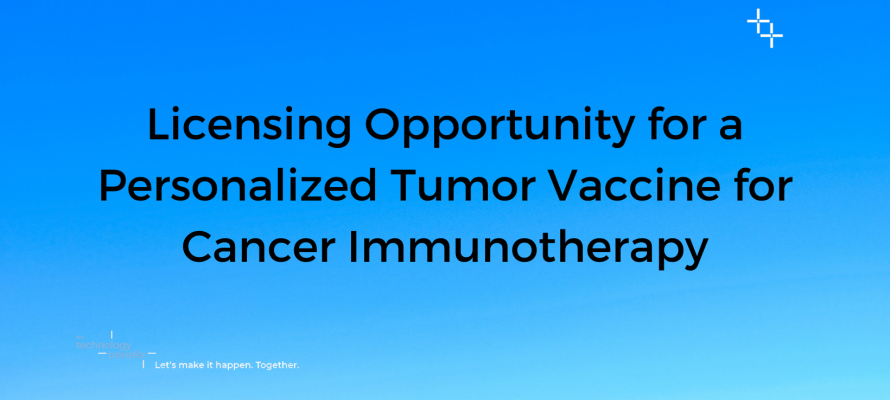Licensing Opportunity for a Personalized Tumor Vaccine for Cancer Immunotherapy

The National Cancer Institute (NCI) and the Eunice Kennedy Shriver National Institute of Child Health and Human Development (NICHD) are seeking licensees for a personalized tumor vaccine for cancer immunotherapy.
Immunologically “cold” tumors have low T-cell infiltration whereas immunologically “hot” tumors have a high T-cell infiltration. These immunologically “hot” tumors have an active anti-tumor immune response following immune checkpoint inhibitors (ICI) treatment whereas the “cold” tumors are less likely to. ICI treatment has improved the outcome of various advanced cancers, therefore there is a need to turn immunologically “cold” tumors to “hot” in order for them to respond to the ICI treatment. Inventors at NCI and NICHD have developed a novel strategy to do so.
The Mannan-Bam, toll-like receptor (TLR) agonists, Anti-CD40 antibodies (MBTA) strategy involves pulsing tumor cells with a combination of mannan-BAM, TLR ligands, and agnostic anti-CD40-monoclonal antibodies. This stimulates acute inflammatory responses in the tumor microenvironment, enhances tumor cell phagocytosis, and induces tumor-specific, adaptive immune responses.
This approach can increase survival rates by improving tumor regression, enhancing tumor-specific infiltrating lymphocytes, and developing immunological memory as shown in colon cancer mice models.
Currently, there are no technologies or products on the market that can turn a “cold” tumor into a “hot” one. This novel immunotherapeutic approach has the potential to bring solutions to the following critical problems in cancer immunotherapy:
- Converts immunologically cold tumors to hot.
- Supports the development of tumor-specific adoptive immunotherapies.
- Makes it possible to generate tumor-specific lymphocytes and identify tumor-specific epitopes for adoptive immunotherapies.
There are many commercial applications for this technology, including:
- Stimulation of the innate and adaptive immune systems to elicit rejection of primary and distant tumors.
- Creating a potent antitumor immune response resulting in improved tumor growth control and survival.
- Personalized tumor vaccine.
- Immunological memory against tumors.
If you are interested in licensing this technology, you can read more about it from the abstract or contact Michael Salgaller at michael.salgaller@nih.gov.
